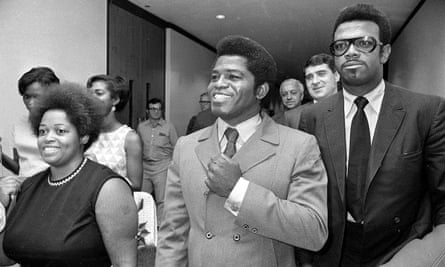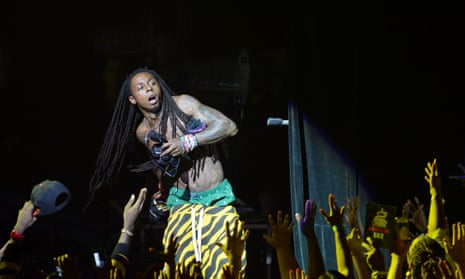Last week Lil Wayne came under fire for publicly denouncing Black Lives Matter (BLM). His comments came only a few months after saying that there’s “no such thing as racism”, and he distanced himself from the movement before later walking back the comments and firing his publicist. “I am a young black rich motherfucker,” he said. “If that don’t let you know that America understand black motherfuckers matter these days, I don’t know what it is.”
Wayne seemed to imply that because he was rich and black, he disproved the notion of racial inequity. Worse still, he seemed to hint that he couldn’t identify with BLM’s objective. “I don’t feel connected to a damn thing that ain’t got nothin’ to do with me. If you do, you crazy as shit,” he added. Wayne later apologized to those who were offended and suggested he was agitated after being asked questions about his daughter.
Both Vic Mensa and TI, who have been vocally supportive of the movement in recent music, publicly aired out Wayne in separate, recent comments – calling him “selfish and ignorant” and his comments “absolutely unacceptable”, respectively. Wayne’s high profile, and black protester past, made him an easy target, but he’s far from the first rap star to speak out against BLM.
Many rappers have dismissed the movement. A$AP Rocky called the movement a “bandwagon” in a Breakfast Club interview. Kevin Gates said it was “bullshit” before putting the blame on black-on-black crime, saying, “we kill each other.” Hopsin shared similar sentiments on Twitter: “Our black lives argument is so contradicting right now. This week more niggaz killed niggas than cops killed niggas.” RZA joined the “All Lives Matter” crowd back in January, and Gucci Mane was scheduled to headline an All Lives Matter concert that was later cancelled. MIA was replaced as the headliner of the Afropunk festival after asking: “Is Beyoncé or Kendrick Lamar going to say Muslim Lives Matter? Or Syrian Lives Matter? Or this kid in Pakistan matters?”
Despite the resonant voices of the movement’s doubters, it does have significant support within the rap community. Common and Talib Kweli, who have always been at the forefront of “conscious” rap, stand with the movement. J Cole performed Be Free on The Late Show with David Letterman just days after the killing of Michael Brown. Chance the Rapper called the movement “important and integral to our advancement as a people” on Hot97. Lil Durk got a Black Lives Matter tattoo, telling HipHopDX: “Killing happens everywhere; it happens, [but] it’s not supposed to happen by the people who’s supposed to protect us.” Killer Mike has been a vocal supporter too.

Support is split, though, and the disparity we’re seeing among rap artists is reflective of a much larger issue plaguing both the black elite and society as a whole. A 2014 study in the Journal of Personality and Social Psychology found that seeing more successful black people has caused many non-blacks to deny the existence of racism. But these ideas aren’t limited to those outside of the black community; over time, they have started to permeate black celebrity, too. The same year as the study, Pharrell introduced the concept of “new blackness”, which “doesn’t blame other races” for “our [black] issues”. Kanye West is on record saying “racism is a dated concept”.
There has always been pushback from prominent black people about aligning with social movements and taking hard political stances. You can see shades of OJ Simpson, who once famously uttered the words, “I’m not black, I’m OJ”, in Lil Wayne’s comments, in this idea that being rich and famous “transcends race”, creating a disconnect where some black people think they’ve priced themselves out of racism. There are clear ties to the black capitalism of James Brown and Pharrell’s new blackness, which put the onus solely on black shoulders.
Across generations, many black musicians and entertainers have chosen to sit on the sidelines during times of civil unrest, opting out of their blackness and any sense of civic responsibility. In an interview with Time Out New York, A$AP Rocky belittled his role as a potential activist: “Every time something happens because I’m black I gotta stand up? What the fuck am I, Al Sharpton now? I’m A$AP Rocky. I did not sign up to be no political activist.” If you have a voice, are you required to use it? “I don’t wanna talk about no fucking Ferguson and shit because I don’t live over there!” He added. “I live in fucking Soho and Beverly Hills. I can’t relate.”
Wayne and Rocky’s comments echo those of fictional rapper Paper Boi in BAN, the seventh episode of Donald Glover’s FX dramedy Atlanta. In the episode, where the rapper is an unwilling guest on a talkshow discussing social issues, he shrugs off his role as a community voice with level-headedness, tact and wit. It raises interesting questions about what should be asked of entertainers in times like these. Should we expect every rapper to be an incisive talking head with well-thought-out platforms on social issues? Should we even be looking to our rappers to be civic leaders? Some aren’t built to be explicitly political; others are. Acts like Public Enemy, NWA and Boogie Down Productions were booming voices of both anger and reason, and now artists like Beyoncé, Kendrick Lamar, and Vince Staples have taken up that mantle. Perhaps it’s best for everyone if we just let the rest decide their own role for themselves.

Comments (…)
Sign in or create your Guardian account to join the discussion